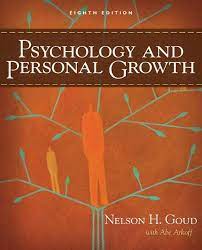The Importance of Good Sleep for Your Health and Well-Being
Good sleep is essential for overall health and well-being. It plays a crucial role in various bodily functions, including physical and mental recovery, cognitive function, emotional regulation, and immune system support.
During sleep, the body goes through important processes that help repair tissues, consolidate memories, regulate hormones, and support overall brain function. Quality sleep is vital for maintaining optimal health and performance in our daily lives.
Benefits of Good Sleep:
- Improved Cognitive Function: Adequate sleep enhances concentration, productivity, creativity, and problem-solving skills.
- Emotional Well-Being: Quality sleep contributes to better mood regulation and lower risk of anxiety and depression.
- Physical Health: Good sleep is linked to a reduced risk of chronic conditions such as heart disease, diabetes, obesity, and immune system deficiencies.
- Enhanced Memory Consolidation: During sleep, the brain processes information gathered throughout the day and strengthens memory retention.
- Improved Stress Management: Proper rest allows the body to recover from daily stressors and promotes resilience to future challenges.
Tips for Better Sleep:
- Maintain a Consistent Sleep Schedule: Go to bed and wake up at the same time every day to regulate your body’s internal clock.
- Create a Relaxing Bedtime Routine: Engage in calming activities before bed such as reading, meditating, or taking a warm bath to signal your body that it’s time to wind down.
- Avoid Stimulants Before Bed: Limit caffeine and nicotine intake in the hours leading up to bedtime to promote better sleep quality.
- Create a Comfortable Sleep Environment: Ensure your bedroom is dark, quiet, cool, and free of distractions to optimize your sleeping conditions.
- Avoid Heavy Meals Before Bed: Opt for light snacks if you’re hungry before bedtime to prevent discomfort that may disrupt your sleep.
Prioritizing good sleep is an investment in your overall health and well-being. By incorporating healthy sleep habits into your daily routine, you can experience improved cognitive function, emotional balance, physical health, memory consolidation, stress management capabilities. Make quality sleep a priority for a healthier and more fulfilling life!
Top 7 FAQs About Achieving Better Sleep and Optimal Health
- 1. How many hours of sleep do I need each night for optimal health?
- 2. What are the consequences of not getting enough sleep?
- 3. How can I improve my sleep quality and fall asleep faster?
- 4. Are there natural remedies or supplements that can help with insomnia or sleep disorders?
- 5. Is it better to maintain a consistent sleep schedule, even on weekends?
- 6. How does technology use before bed affect my ability to fall asleep?
- 7. What are the potential benefits of napping during the day for overall sleep health?
1. How many hours of sleep do I need each night for optimal health?
To achieve optimal health, it is generally recommended that adults aim for 7 to 9 hours of sleep per night. The exact amount of sleep needed can vary from person to person based on factors such as age, lifestyle, and individual sleep requirements. Getting adequate rest is essential for supporting overall well-being, cognitive function, emotional balance, and physical health. Consistently prioritizing quality sleep within the recommended range can contribute to improved energy levels, mood regulation, immune system function, and overall vitality.
2. What are the consequences of not getting enough sleep?
Not getting enough sleep can have significant consequences on both our physical and mental well-being. When we consistently lack adequate sleep, our cognitive function may be impaired, leading to difficulties in concentration, memory retention, and decision-making. Additionally, insufficient sleep can weaken our immune system, making us more susceptible to illnesses and infections. Emotionally, a lack of sleep can contribute to mood swings, irritability, and heightened stress levels. Furthermore, chronic sleep deprivation has been linked to an increased risk of various health conditions such as obesity, diabetes, heart disease, and mental health disorders. Prioritizing sufficient and quality sleep is crucial for maintaining optimal health and functioning in all aspects of life.
3. How can I improve my sleep quality and fall asleep faster?
To improve sleep quality and fall asleep faster, incorporating healthy sleep habits into your nightly routine is key. Start by creating a relaxing bedtime ritual that signals to your body it’s time to wind down. This may include activities like reading a book, taking a warm bath, or practicing deep breathing exercises. Additionally, maintaining a consistent sleep schedule by going to bed and waking up at the same time every day can help regulate your body’s internal clock. Avoiding stimulants like caffeine and electronic devices before bedtime, ensuring your sleep environment is comfortable and free of distractions, and engaging in regular physical activity during the day can also contribute to better sleep quality and quicker onset of sleep. By making these adjustments and prioritizing good sleep hygiene, you can enhance your overall sleep experience and promote better restorative rest.
4. Are there natural remedies or supplements that can help with insomnia or sleep disorders?
When it comes to addressing insomnia or sleep disorders, many individuals inquire about natural remedies or supplements that can aid in improving sleep quality. Some commonly recommended natural remedies include valerian root, melatonin, chamomile tea, and lavender essential oil. These substances are believed to have calming and sedative properties that may promote relaxation and facilitate better sleep. However, it is important to consult with a healthcare provider before incorporating any supplements into your routine, as individual responses to these remedies can vary and potential interactions with existing medications should be considered. Integrating relaxation techniques, maintaining a consistent sleep schedule, and creating a conducive sleep environment are also essential components of managing insomnia and promoting restful sleep.
5. Is it better to maintain a consistent sleep schedule, even on weekends?
Maintaining a consistent sleep schedule, even on weekends, is beneficial for overall sleep quality and well-being. While it may be tempting to stay up later and sleep in on weekends, disrupting your regular sleep routine can negatively impact your body’s internal clock and lead to difficulties falling asleep or waking up during the week. Consistency in bedtime and wake-up times helps regulate your circadian rhythm, promoting better sleep patterns and ensuring you feel more rested and alert throughout the week. Striving for a consistent sleep schedule, even on weekends, can contribute to improved cognitive function, mood stability, and overall health in the long run.
6. How does technology use before bed affect my ability to fall asleep?
The use of technology before bed can significantly impact your ability to fall asleep. The blue light emitted by screens such as smartphones, tablets, and computers interferes with the production of melatonin, the hormone that regulates sleep-wake cycles. Exposure to blue light suppresses melatonin production, making it harder for your body to prepare for sleep. Additionally, engaging with stimulating content or activities on devices before bedtime can increase alertness and cognitive arousal, making it more challenging to relax and transition into a restful state conducive to sleep. To improve your sleep quality, it’s recommended to limit technology use at least an hour before bedtime and opt for relaxing activities that promote a calm and conducive environment for a good night’s rest.
7. What are the potential benefits of napping during the day for overall sleep health?
Napping during the day can have potential benefits for overall sleep health when done strategically. Short naps, typically lasting 20-30 minutes, can help boost alertness, productivity, and mood without interfering with nighttime sleep. These power naps can provide a quick energy boost and improve cognitive function. However, longer naps or napping too close to bedtime may disrupt your regular sleep patterns and make it harder to fall asleep at night. It’s important to find the right balance and listen to your body’s natural rhythms to reap the benefits of daytime napping without compromising your nighttime rest.




